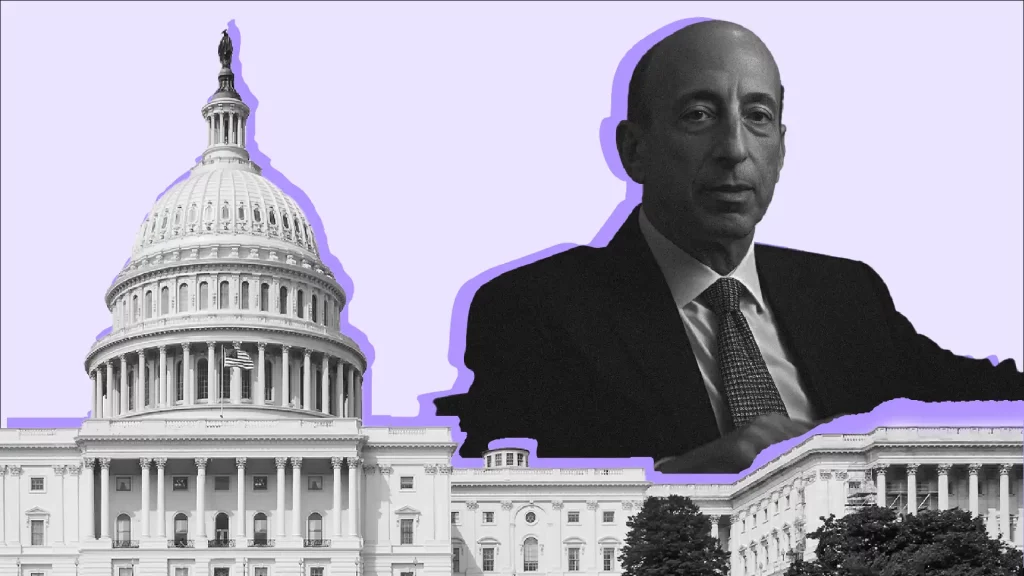Will This Congress Bill Limit The SEC’s Power?

Key Takeaways
- The Financial Innovation and Technology for the 21st Century Act (FIT) aims to “close existing authority gaps.”
- FIT would clearly define the roles held by the SEC and the CFTC in the crypto sector
- FIT awaits a House vote
A bill put forth by congressmen Patrick McHenry, Chairman of the House Committee on Financial Services, and Glenn Thompson, Chairman of the House Committee on Agriculture, back in July creates a framework upon which authorities of the US Securities (SEC) and Exchange Commission and the Commodity Futures Trading Commission (CFTC) are clearly defined.
The Financial Innovation and Technology for the 21st Century Act (FIT) has already been greenlit by both committees and now awaits a vote in the House.
FIT Green Lighting
The Financial Innovation and Technology for the 21st Century Act lists terms upon which the involved committees see the SEC and CFTC working more harmoniously for a more stable crypto sector.
The bill introduces several terms, including “intent to register for CFTC intermediaries,” “intent to register for SEC intermediaries”, and “Antifraud authority over payment stablecoins.”
The latter highlights how the bill would limit the SEC’s tight control over the market, as it reads:
“The SEC shall have no authority over the design, structure, issuance, redemption, financial resources, collateral, or any other aspect of a payment stablecoin’s operation.”
“Today’s introduction of the Financial Innovation and Technology for the 21st Century Act marks a significant milestone in the House Committees on Agriculture and Financial Services efforts to establish a much-needed regulatory framework that protects consumers and investors and fosters American leadership in the digital asset space,” said Chairman Thompson.
“Over the past several months, our teams solicited extensive feedback from stakeholder and market participants and worked diligently to produce a legislative product that aims to close existing authority gaps, ensuring U.S. leadership in financial and technological innovation.”
“I thank Chairman McHenry for his leadership and that of our subcommittee chairs in moving this legislation to this stage.”
Chairman of the Subcommittee on Digital Assets, Rep. French Hill also added, “This legislation would not only have prevented FTX from stealing billions of customer funds, but also establishes robust consumer protections and clear rules of the road for market participants. I look forward to this historic legislation being considered in both the House Committees on Financial Services and Agriculture next week.”
Opposition To The Bill
Some members of Congress oppose the introduction of the FIT bill. The head Democrat on the House Financial Services Committee, Maxine Waters, shows her support for the current structure of the SEC and its Chairman, Garry Gensler. Waters eventually voted against sending the bill out to the committee.
Congressman Brad Sherman a vocal critic of cryptocurrencies, told Unchained “I support the efforts of the SEC and I’m opposed to legislation that’s clearly designed to undermine the SEC.”
In the meantime, the bill awaits a response from the Senate. As things stand, the Senate holds a Democrat majority, as well as a long list of individuals who oppose the bill/lineant crypto regulations, such as Congressman Ritchie Torres.